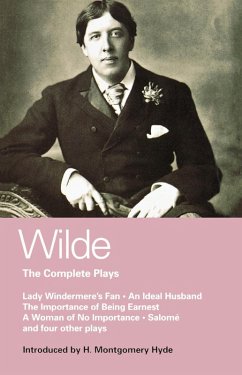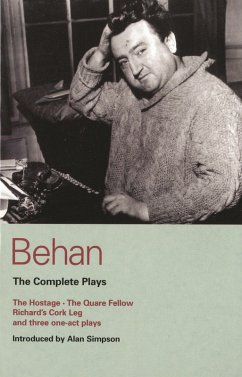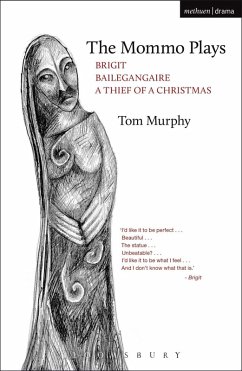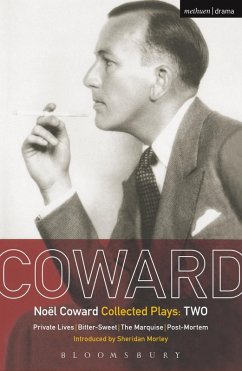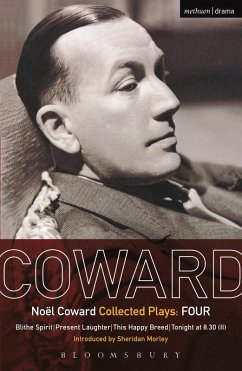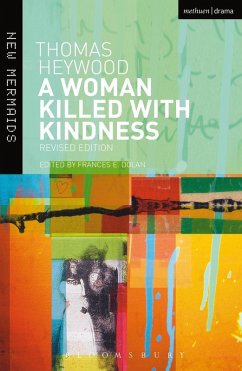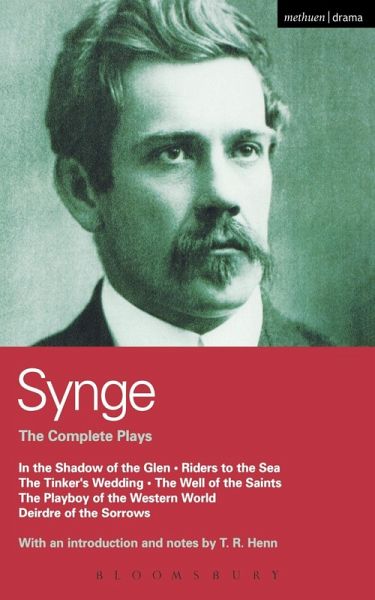
Synge: Complete Plays (eBook, PDF)
In the Shadow of the Glen; Riders to the Sea; The Tinker's Wedding; The Well of the Saints; The Playboy of the Western World; Deirdre of the Sorrows
Versandkostenfrei!
Sofort per Download lieferbar
19,95 €
inkl. MwSt.
Weitere Ausgaben:

PAYBACK Punkte
10 °P sammeln!
A re-issue of the collected plays by one of Ireland's most celebrated writers In The Shadow of the Glen an old man tests his wife's commitment by feigning death; Riders to the Sea is inspired by Synge's stay on the Aran Islands and shadows the death of a way of life as a mother sees her sons die before her eyes; The Tinker's Wedding is about a woman's desire for marriage to her tinker husband and is full of Synge's fascination for the tinker breed who had freed themselves from govenment and conventions while giving way to instincts of sexual promsicuity, fighting and drinking; The Well of Sain...
A re-issue of the collected plays by one of Ireland's most celebrated writers
In The Shadow of the Glen an old man tests his wife's commitment by feigning death; Riders to the Sea is inspired by Synge's stay on the Aran Islands and shadows the death of a way of life as a mother sees her sons die before her eyes; The Tinker's Wedding is about a woman's desire for marriage to her tinker husband and is full of Synge's fascination for the tinker breed who had freed themselves from govenment and conventions while giving way to instincts of sexual promsicuity, fighting and drinking; The Well of Saints is set near a holy well known for its cures of blindness and epilepsy and centres on the figure of Martin Doul, who is blind and has two illusions - the first, that he and his wife Mary are a handsome couple and the second, that the visible world is full of wonder and delight; The Playboy of the Western World, in which a young man lies about the death of his father offended audiences when first produced in 1907 on account of its 'immodest' references to Irish womanhood and aroused a prolonged and bitter controversy, which lasted until the author's death in 1909; Deirdre of the Sorrows is Synge's last play, published posthumously and tells the story of a young and beautiful girl, destined to be the bride of an ageing king who elopes with a younger man and after the magical seven years returns only to bring with her the destruction of a city.
>
In The Shadow of the Glen an old man tests his wife's commitment by feigning death; Riders to the Sea is inspired by Synge's stay on the Aran Islands and shadows the death of a way of life as a mother sees her sons die before her eyes; The Tinker's Wedding is about a woman's desire for marriage to her tinker husband and is full of Synge's fascination for the tinker breed who had freed themselves from govenment and conventions while giving way to instincts of sexual promsicuity, fighting and drinking; The Well of Saints is set near a holy well known for its cures of blindness and epilepsy and centres on the figure of Martin Doul, who is blind and has two illusions - the first, that he and his wife Mary are a handsome couple and the second, that the visible world is full of wonder and delight; The Playboy of the Western World, in which a young man lies about the death of his father offended audiences when first produced in 1907 on account of its 'immodest' references to Irish womanhood and aroused a prolonged and bitter controversy, which lasted until the author's death in 1909; Deirdre of the Sorrows is Synge's last play, published posthumously and tells the story of a young and beautiful girl, destined to be the bride of an ageing king who elopes with a younger man and after the magical seven years returns only to bring with her the destruction of a city.
>




